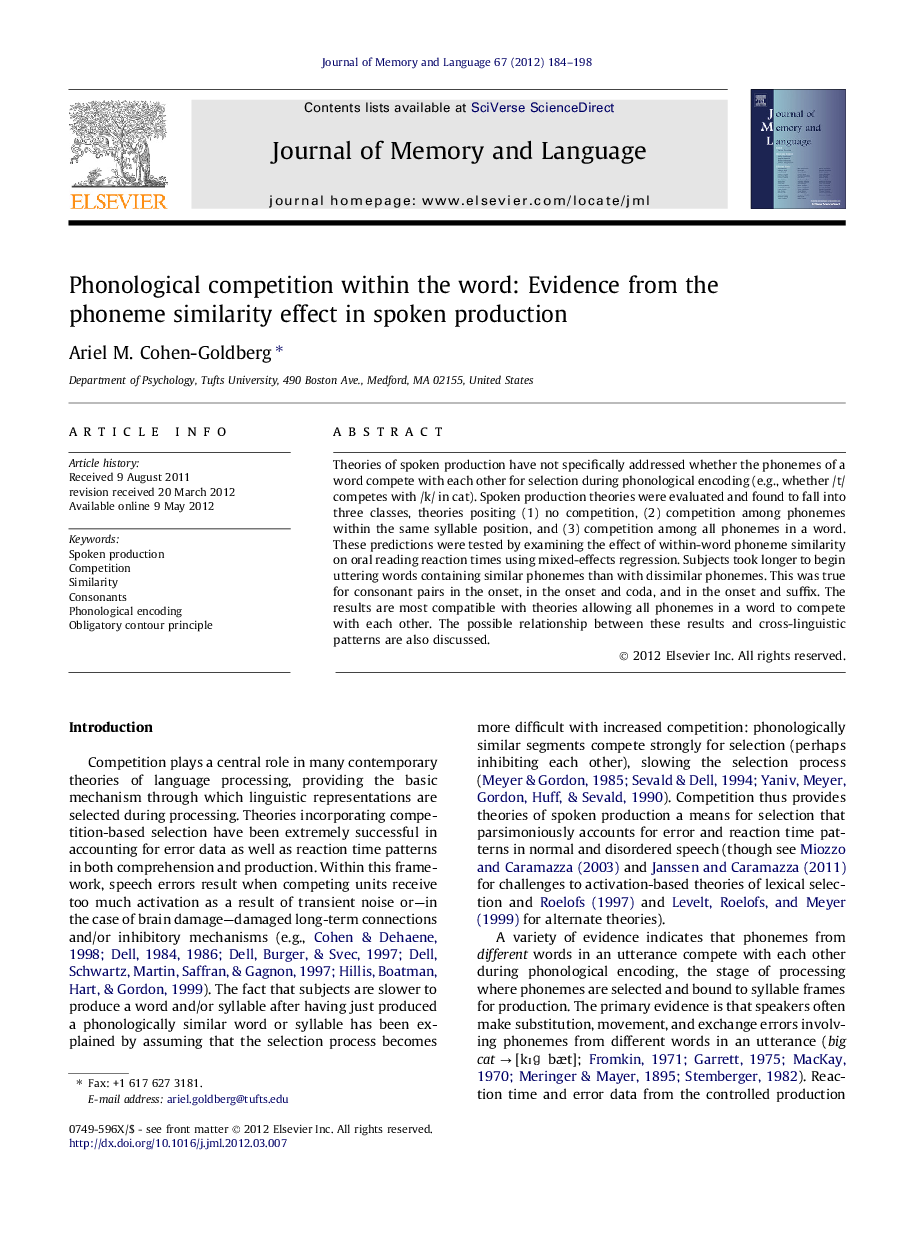| Article ID | Journal | Published Year | Pages | File Type |
|---|---|---|---|---|
| 932024 | Journal of Memory and Language | 2012 | 15 Pages |
Theories of spoken production have not specifically addressed whether the phonemes of a word compete with each other for selection during phonological encoding (e.g., whether /t/ competes with /k/ in cat). Spoken production theories were evaluated and found to fall into three classes, theories positing (1) no competition, (2) competition among phonemes within the same syllable position, and (3) competition among all phonemes in a word. These predictions were tested by examining the effect of within-word phoneme similarity on oral reading reaction times using mixed-effects regression. Subjects took longer to begin uttering words containing similar phonemes than with dissimilar phonemes. This was true for consonant pairs in the onset, in the onset and coda, and in the onset and suffix. The results are most compatible with theories allowing all phonemes in a word to compete with each other. The possible relationship between these results and cross-linguistic patterns are also discussed.
► Within-word phoneme competition was investigated using phonological similarity. ► Consonant similarity was found to inhibit oral reading reaction times. ► The similarity of all of a word’s consonants influenced RTs, even roots and suffixes. ► All consonants in a word compete with each other during phonological encoding.
